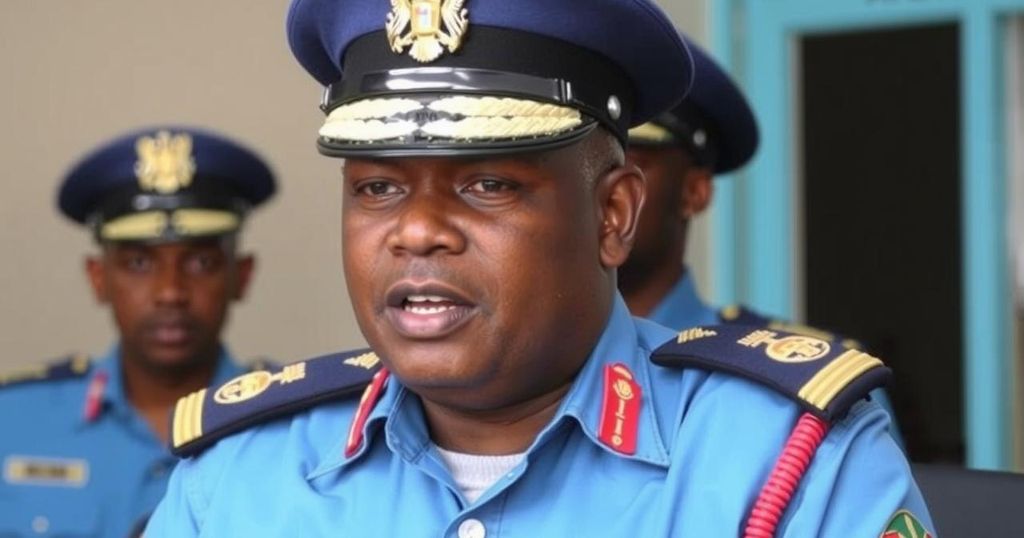Kenya Police Chief Denies Unpaid Salary Claims for Haiti Peacekeepers

Kenya’s police chief, Douglas Kanja, has rejected claims that officers deployed in Haiti have not received salaries for three months, stating they were paid through the end of October. The remarks respond to media reports where officers expressed concerns over delayed payments. Kenya heads the foreign police contingent in Haiti to address significant gang violence.
In a recent statement, the Inspector General of Kenya’s police, Douglas Kanja, firmly refuted allegations that officers deployed in Haiti as part of a United Nations-supported peacekeeping mission have not received their salaries for three months. He clarified that these officers have been compensated through the end of October, directly challenging the claims made by Kenyan media that reported on the grievances of the officers regarding delayed payments. As part of efforts to control gang violence in Haiti, Kenya leads a diverse team of foreign police officers, marking a significant military intervention in the region since these officers were deployed in June.
The context of this report lies in the ongoing international peacekeeping initiatives in Haiti, which has suffered from escalating gang-related violence. Numerous foreign military personnel and police forces have intervened in the country with varying degrees of success. The specific claims regarding unpaid salaries have raised concerns about the welfare of Kenyan officers who are playing a critical role in these peacekeeping efforts, aimed at restoring order and security in Haiti. The denial by Inspector General Kanja is aimed at reassuring both the officers in the field and the public about the government’s support for these missions.
In conclusion, the Inspector General of the Kenya Police has dismissed worries regarding unpaid salaries for officers stationed in Haiti, asserting that all dues are current as of late October. This rebuttal comes against the backdrop of Kenya’s leadership in international peacekeeping efforts, which seeks to address severe gang violence in the Caribbean nation. Ensuring the timely remuneration of these officers is essential to maintaining morale and effectiveness in their crucial peacekeeping roles.
Original Source: www.wdrb.com







